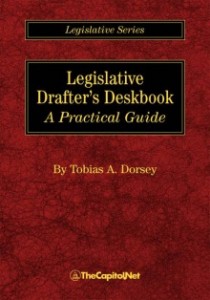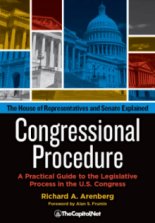Rules (CongressionalGlossary.com)
From the Congressional Glossary – Including Legislative and Budget Terms Rules The term “rules” has two specific congressional meanings. A rule may be a standing order governing the conduct of House or Senate business that is listed among the permanent rules of either chamber. The rules deal with duties of officers, the order of business, … Read more



